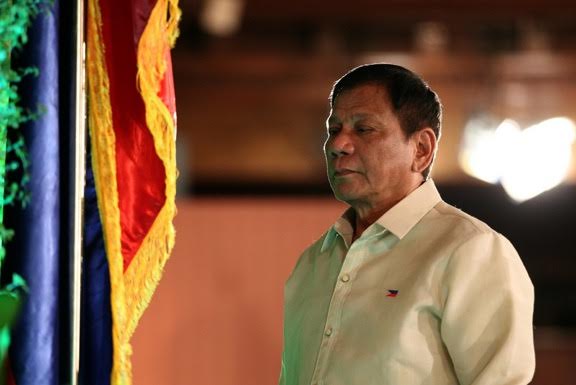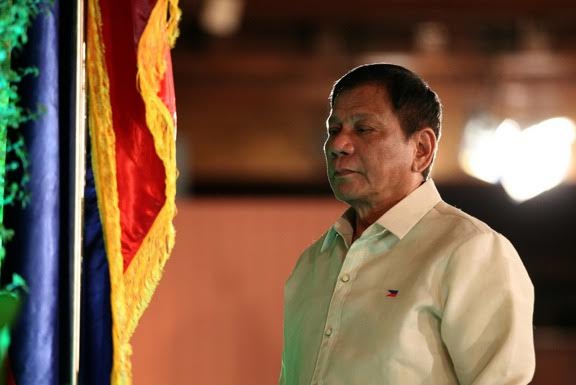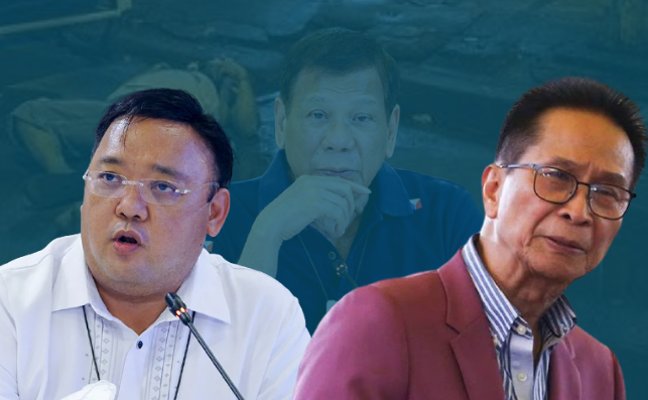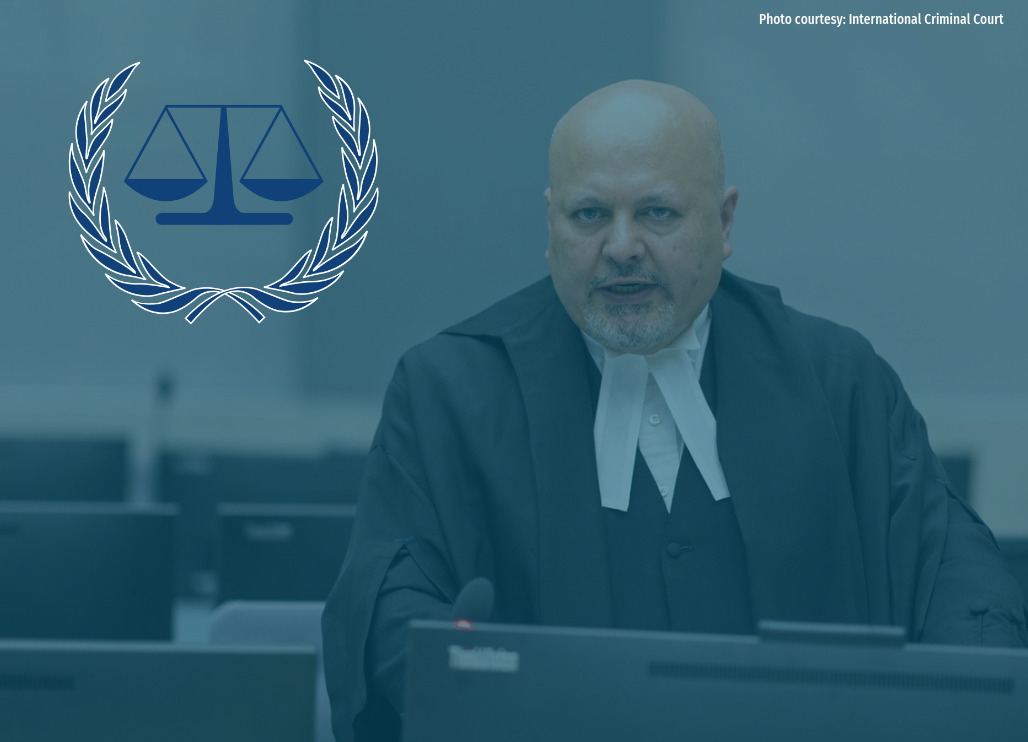Solicitor General Jose Calida claimed President Rodrigo Duterte’s immunity from suit would spare him from any investigation by the International Criminal Court (ICC) or the Commission on Human Rights (CHR). Wrong.
He also accused the CHR of bragging about probing Duterte and disputed the commission’s investigative mandate. Wrong and wrong.
STATEMENT
Asked in a Feb. 13 press conference who would represent the government before the ICC should its preliminary examination on drug-related killings move forward, Calida questioned the authority of the international court to investigate the president. He said the 1987 Constitution is “higher than any treaty,” including the Rome Statute that created the ICC.
Calida also invoked the president’s immunity under the Constitution:
“Under our Constitution and buttressed by jurisprudence, the president is immune from suit. If he’s immune from suit under our Constitution, why should another organization, invoking a treaty, will get, like for instance this ICC? Is the treaty higher than our Constitution?”
Source: News5’s Facebook page, Press briefing ni Solicitor General Jose Calida, Feb. 13, 2018, watch from 24:01 to 24:46
ICC Prosecutor Fatou Bensouda confirmed Feb. 8 her office will conduct a preliminary examination of crimes committed in the government’s anti-drug campaign. The ICC “investigates and, where warranted, tries individuals charged with genocide, war crimes, crimes against humanity and the crime of aggression.”
Calida said the ICC “has no jurisdiction because our courts are functioning,” offering as proof a pending case in the Supreme Court contesting the constitutionality of the Oplan Tokhang.
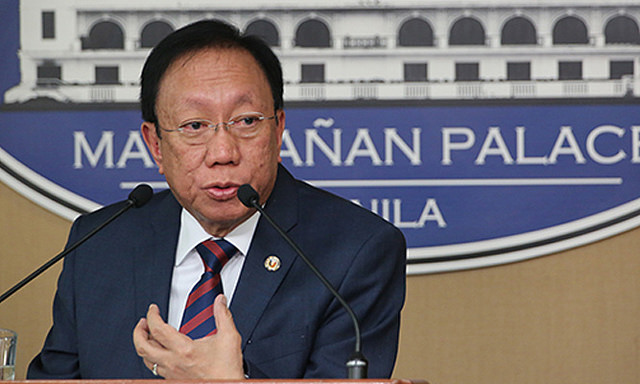
During the press conference, Calida also turned his ire on the CHR:
“And now this CHR, they are bragging that they will do the investigation. Where did it get its authority? Is the CHR a different branch of government? As far as I know there are only three: executive, legislative, judiciary.”
Source: News5’s Facebook page, Press briefing ni Solicitor General Jose Calida, Feb. 13, 2018, watch from 24:51 to 25:12
FACT
Duterte’s immunity from suit during his tenure does not stop the ICC from investigating him.
The Rome Statute, to which the Philippines is a signatory, states:
“Immunities or special procedural rules which may attach to the official capacity of a person, whether under national or international law, shall not bar the Court from exercising its jurisdiction over such a person.”
Source: Article 27, Rome Statute of the International Criminal Court
This means presidential immunity, earlier invoked by Duterte when he threatened to kill criminals, is not an excuse from the ICC probe. (See VERA FILES FACT CHECK: ICC can strip off Duterte’s immunity)
While Calida is correct in saying the ICC cannot interfere when local courts are functioning, the Philippines, having been a party to the Rome Statute since 2011, has a “general obligation to cooperate” with the ICC in its investigations.
“States Parties shall, in accordance with the provisions of this Statute, cooperate fully with the Court in its investigation and prosecution of crimes within the jurisdiction of the Court.”
Source: Article 86, Rome Statute of the International Criminal Court
“When we suited up to be a part of the Rome Statute that established the ICC, we agreed to this international legal system of holding international criminals accountable before the world’s first permanent international tribunal,” said lawyer Romel Bagares in an earlier interview with VERA Files.
Calida’s allegation that the CHR had bragged about conducting an investigation on Duterte is also inaccurate.
CHR Chairperson Chito Gascon, following Bensouda’s Feb. 8 announcement, never said his office will investigate Duterte separately from the ICC probe.
A report by Agence France Presse quoted Gascon saying the CHR is willing to extend help if requested by the international tribunal.
“The CHR is ready, if requested, to assist in any way with the process of preliminary examination. The government, as a party to the Rome Statute, is duty-bound to fully cooperate with the ICC.”
Sources: Abs-cbn.com, CHR ready to work with ICC in probe over deaths in anti-illegal drugs campaign, Feb. 10, 2018; Philstar.com, Gascon ready to work with ICC in Duterte probe, Feb. 10, 2018; Inquirer.net. CHR chief ready to work with ICC in EJK probe, Feb. 11, 2018.
Contrary to Calida’s claim, the CHR, though not a separate branch of government, has the power to investigate human rights violations by state and nonstate actors.
The 1987 Constitution tasks the commission to “investigate, on its own or on complaint by any party, all forms of human rights violations involving civil and political rights.” (See VERA FILES FACT SHEET: The Commission on Human Rights, explained)
The CHR in 2016 initiated an investigation on the alleged extrajudicial killings in the Duterte administration’s war on drugs.
Sources
Inquirer.net. CHR chief ready to work with ICC in EJK probe, Feb. 11, 2018
Abs-cbn.com. CHR ready to work with ICC in probe over deaths in anti-illegal drugs campaign, Feb. 10, 2018
Philstar.com. Gascon ready to work with ICC in Duterte probe, Feb. 10, 2018
Gmanetwork.com. Task force EJK, binuo ng CHR para imbestigahan ang pagpatay umano sa ilang drug suspect, July 14, 2016
International Criminal Court. About.
International Criminal Court. Rome Statute of the International Criminal Court.
International Criminal Court. Statement of the Prosecutor of the International Criminal Court, Mrs Fatou Bensouda, on opening Preliminary Examinations into the situations in the Philippines and in Venezuela, Feb. 8, 2018
International Criminal Court. Understanding the International Criminal Court.
Official Gazette, The 1987 Constitution of the Republic of the Philippines
(Guided by the code of principles of the International Fact-Checking Network at Poynter, VERA Files tracks the false claims, flip-flops, misleading statements of public officials and figures, and debunks them with factual evidence. Find out more about this initiative.)
Share the Facts

